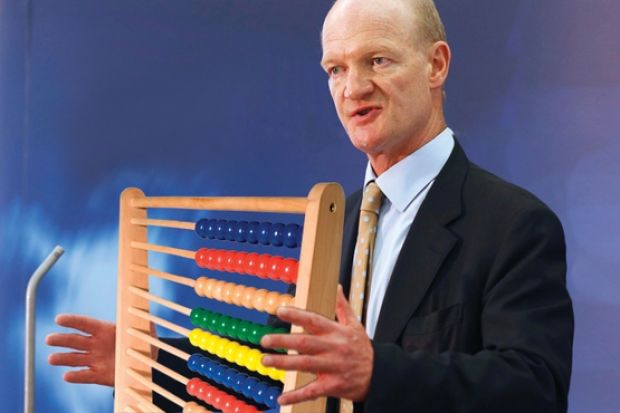The universities and science minister was delivering the first in a new annual series of lectures, sponsored by SAGE for the Campaign for Social Sciences, titled “What Next for Social Science? The Agenda to 2015”, on 28 October.
He confirmed that £800,000 will be provided by the Higher Education Funding Council for England to sigma, the cross-university network providing support in mathematics and statistics to students in England.
Mr Willetts praised British work in the social sciences as “world-class in many disciplines and good at making the connections between them”.
It was “always better to decide policy on the basis of evidence” and one of the reasons the Robins Report had “stood the test of time as one of the landmark reports on social policy” was precisely because it drew extensively on social science research, he argued.
The Department for Business Innovation and Skills is shortly to mark the 50th anniversary with a report setting out the social and personal, economic and non-economic benefits of university education, drawing on important new academic research, Mr Willetts added.
Mr Willetts undertook to make it easier for researchers to access linked data sets. However, in the case of bringing together data on how people’s educational experience translated into earnings and tax contributions this would require fresh legislation, he added.
The minister also pointed to “the now serious shortage of graduates with sufficient numeracy skills”, which initiatives such as the additional funding for sigma attempted to address.
Mr Willetts ended his lecture “in true academic style”, he told the audience, by identifying areas where he believed “further research is needed”.
One was the topic of “intergenerational equity” he had addressed in his own 2010 book, The Pinch: How the Baby Boomers Took Their Children’s Future – And Why They Should Give It Back.
Equally important was new work re-examining “the structure and assumptions of economics” and ways of dealing with uncertainty and risk.
Register to continue
Why register?
- Registration is free and only takes a moment
- Once registered, you can read 3 articles a month
- Sign up for our newsletter
Subscribe
Or subscribe for unlimited access to:
- Unlimited access to news, views, insights & reviews
- Digital editions
- Digital access to THE’s university and college rankings analysis
Already registered or a current subscriber? Login




